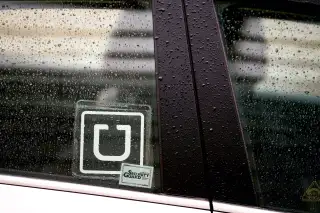How Uber Breaks the Rules (And Why You Should Care)

Shawn Marquez doesn't understand why this has to be so hard.
As acting director of Arizona's Department of Weights and Measures, the body responsible for regulating the state's cab services, he is responsible for enforcing some of the friendliest taxi rules in the nation. For just $24 a year, anyone in Arizona can drive a cab—and for liveries and limos, it's free.
Just undergo some kind of background check and drug test -- the state doesn't even ask to see the documentation -- have your vehicle inspected, and buy a commercial insurance policy that meets the state minimum of $300,000. For Uber, a company recently valued at $40 billion, that shouldn't be too much to ask.
But the ridesharing company decided Arizona's laws were still too much. "It was just a non-starter for those folks," says Marquez. Uber refused to deviate from its policies, which include no preliminary drug screening and insurance coverage of just $50,000 per injury (and a max of $100,000 per ride) if a driver has not yet started a trip when the accident occurs. The company continues to operate illegally in Arizona, leaving motorists and pedestrians on the hook in the event of an accident involving one of the ridesharing company's vehicles. (Uber did not respond to requests for comment.)
That situation is mirrored in Portland, where taxi drivers are also required to hold insurance of at least $500,000 per-incident. This week the company decided to launch its service in Portland in defiance of the law, triggering a lawsuit by the city. And Uber is having similar disputes with municipalities around the country and around the world.
Of course, the risk inherent in these situations is not hypothetical. On New Year's Eve 2013, a San Francisco Uber driver struck and killed 6-year-old Sofia Liu and injured other family members as they crossed a street. Uber's $1 million insurance coverage was not triggered because the driver didn't have a fare, and only after the accident did Uber institute its $50,000 per-injury between-fare policy. That left Liu's family without compensation and $200,000 in medical bills. (San Francisco law, meanwhile, requires traditional taxis to carry $1 million of commercial liability insurance at all times, even between fares.)
Insurance is only part of Uber's apparent disregard for safety regulations. Many municipalities require taxi drivers to undergo a fingerprint background check that is run through Department of Justice and F.B.I. databases. Preliminary drug testing is also a common requirement. Uber does perform background checks on its drivers, but uses a third-party service called Hirease that does not use government databases or require fingerprints. And drivers are screened for narcotics only after passengers lodge a complaint. The company has fought efforts in Chicago, Arizona, California, and elsewhere to make Uber submit to the same background check and drug-testing rules that conventional taxis are required to follow.
Uber has responded to criticism of its screening efforts by claiming Hirease's background checks are superior to those required of traditional cab companies. But many lawmakers and officials disagree. On Tuesday, district attorneys from San Francisco and Los Angeles filed a consumer protection lawsuit against Uber, accusing the company of misleading customers about its safety practices. San Francisco District Attorney George Gascon called Uber's background checks "completely worthless" because they do not involve fingerprinting drivers.
That sentiment is echoed by Adrin Nazarian, a California assemblyman who sponsored a bill that would require Uber drivers to get fingerprint background checks and submit to drug and alcohol testing. After resistance by Uber, the bill was defeated. “No private background check can compete with state-run background checks,” said Nazarian in an interview with the New York Times.
Back in Arizona, Marquez has his work cut out for him. He says Uber not only ignores the Arizona law, but also neglects to tell drivers these laws exist. "When we do stop drivers, I swear they tell us, 'Wow I had no idea. The company told me I was good to go,'" says Marquez.
He still wonders why Uber won't just follow the rules. "Some areas regulate how many cars you can have, their color, their year, how much the price is. In Arizona we don't do any of that," Marquez notes. "You can have purple cars with stars and stripes as long as you have the insurance."